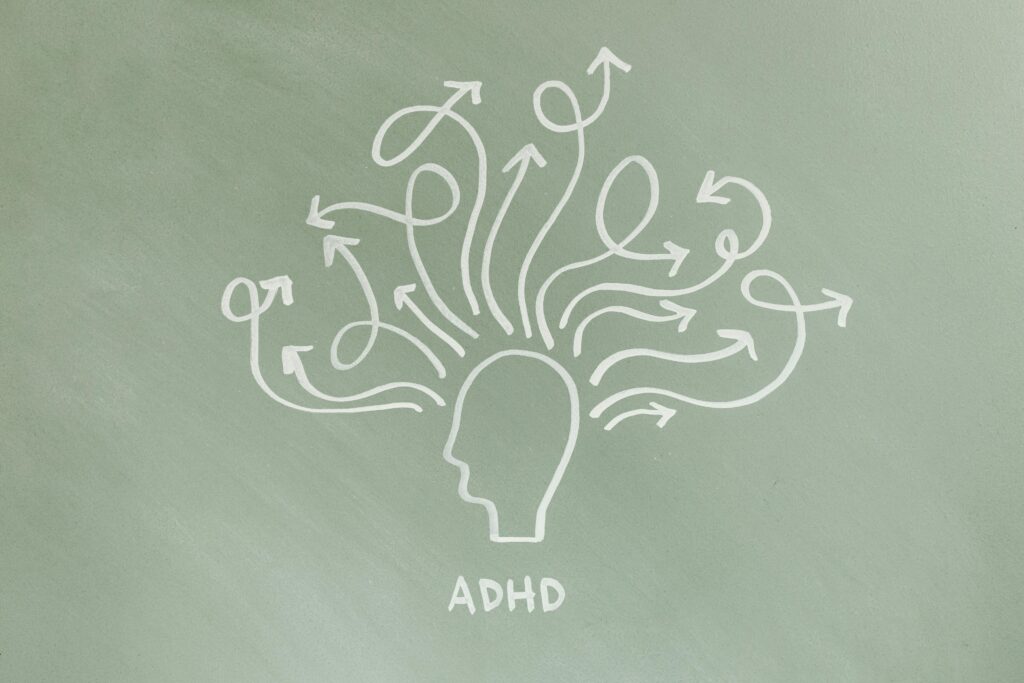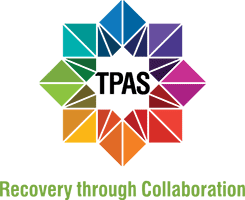By Laura Eshelman, MSW
How often do you hear someone jokingly say, “That’s just my ADHD!” in response to moments of forgetfulness, meandering conversation, or otherwise getting off-task? Whether we align with an ADHD diagnosis or not, the fact that the label has entered our everyday speech so effortlessly (and relatively recently) points to a growing, global struggle: focus.
Tell me more about ADHD

Few diagnoses are as fraught with as much controversy as “attention deficit-hyperactivity disorder”. The diagnosis under that name first entered the DSM in 1987, following earlier iterations since 1968 of conditions largely attributed to children (formalized as “ADD” in 1980). Symptoms included impulsivity, short attention spans, and restlessness, which often interfered significantly with classroom productivity. (Adhd – The Diagnostic Criteria). Since 1994, when the DSM categorized ADHD into three subtypes, prevalence rates have soared in both children and adults. Research from a 2022 NIH publication reported an increase from 6.1% to 10.2% between 1997 to 2016. (ADHD Diagnostic Trends: Increased Recognition or Overdiagnosis? ). Along with this, over 41 million people in the U.S. now have prescriptions for Adderall and its generic equivalent. This is a number that does not even include other common stimulant and non-stimulant medications approved for ADHD treatment. (https://columbianewsservice.com/2023/03/09/is-adderall-being-over-prescribed-by-doctors-some-pharmacists-think-so/)
A constellation of tense debates revolves around ADHD. There are concerns about the consequences of overdiagnosing and overmedicating children. This is coupled with the risks of medication dependency, as well as debate over whether or not ADHD is truly an individual malady as much as a by-product of the perpetual and constant drains on our attention spans. This is also accelerated by the pace and technological demands of the modern world. Furthermore, stigma continues to permeate deficit-based perceptions about people with ADHD, namely in perceptions that conflate it with unreliability or rudeness. (https://www.healthline.com/health/adhd/stigma#effects-of-stigma)
Regardless of the smorgasbord of opinions about ADHD as a disorder or brain difference, professional and otherwise, the fact remains that a growing number of people face heightened challenges with organization, finishing tasks, and even maintaining social relationships. For many people who discover that they meet the criteria of an ADHD diagnosis, this is the first step toward finding treatments that can make daily living easier. Cognitive behavioral therapy, or CBT, is one such treatment.
Exactly how can CBT help with ADHD?
The core of CBT, a modality practiced by most clinicians at CooperRiis, is to identify unhelpful thinking patterns and behaviors that impair one’s quality of life. Then, collaborative problem-solving between client and therapist should be used to interrupt and divert them into coping tools. While psychoeducation may also play a role in the treatment of ADHD, the goals of CBT tend to involve developing effective interventions for presenting problems, rather than examining their origins. ( https://www.apa.org/ptsd-guideline/patients-and-families/cognitive-behavioral ) For ADHD, this may involve new strategies for dealing with distractibility, procrastination, and organization or planning. CBT in ADHD treatment may also incorporate thought ‘restructuring’ as a way to help people overcome self-defeating and/or more realistic narratives related to ADHD– whether that involves overestimating one’s ability to keep track of time without help, or self-defeating beliefs about one’s inability to succeed in school or at work (Description and Demonstration of CBT for ADHD in Adults).
What about other treatements?
Research strongly suggests that a combination of psychotherapy and medication tends to produce the most optimal outcomes for adults seeking to manage ADHD, with some of the most empirical support for CBT (What to know about psychotherapy for ADHD). However, it bears remembering that ADHD is a form of neurodivergence, and thus best served with highly individualized approaches. CooperRiis’s person-first-centered model of care is advantageously poised to help people who need residential care find techniques that are likely to best serve them in managing ADHD symptoms.
With recent changes to CooperRiis’s physical milieus to reduce stimuli, along with staff support in practicing things like setting alarms, reminders to take medication, and even setting (voluntary) boundaries around technology, residents with ADHD can find the time and space to learn what works best for them as individuals. In line with CBT and thought restructuring, CooperRiis’s strengths-based approach may also help individuals with ADHD understand that the diagnosis is not a reflection of personal deficits– instead, it speaks to how diverse our brains truly are, and how differently they respond to environmental factors that may need to be tweaked in order to make day-to-day functioning less stressful.









